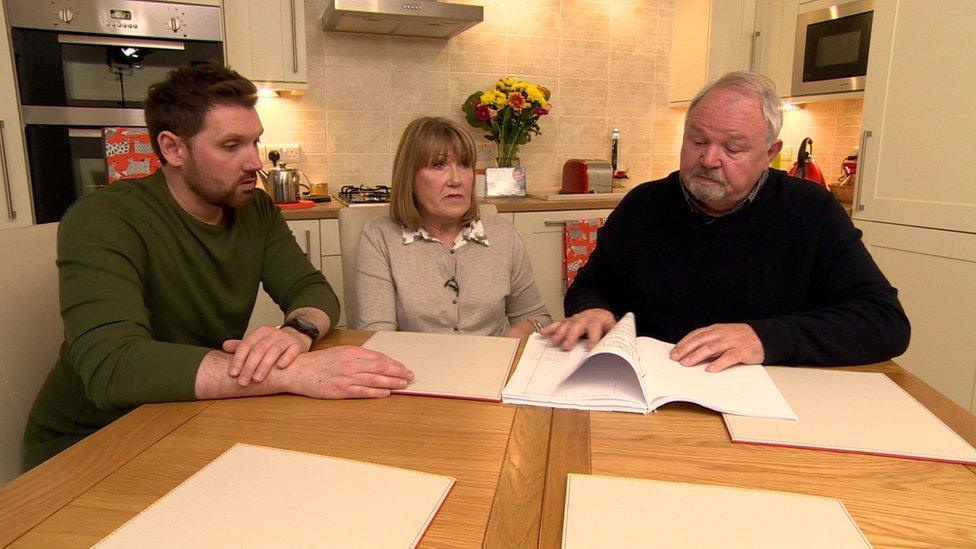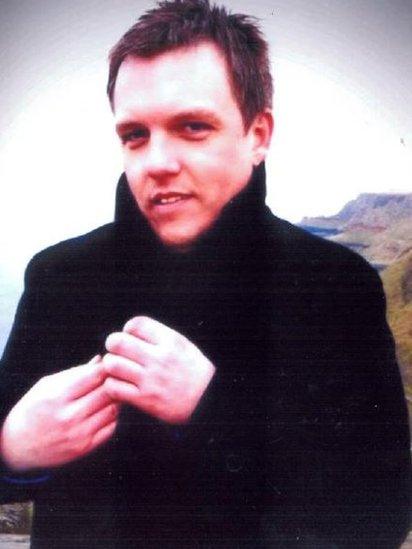'We miss him every day' - parents recall pain after son took his own life
- Published

The Hamilton family sat through Ian's inquest earlier this month
Charles and Elma Hamilton have heavy hearts.
Their son Ian died on 12 March, 2013. At 38 years old, he took his own life.
From their home in Ballyclare, County Antrim, alongside their other son Ross, the couple describe how mental health problems engulfed their eldest son and how, as a result, the family reached breaking point.

Ian Hamilton took his own life in March 2013
Earlier this month, they sat through Ian's inquest in Belfast. He was a father of two children.
His story highlights how, too often, there is a lack of joined up thinking between mental health services.
It also demonstrates that sometimes an emergency department is not the best place to treat people with a serious psychological disorder.
Ian was first diagnosed with depression in 1998. He was deeply troubled and had problems with alcohol and drug addiction.
However, his post mortem showed no sign of substance abuse.
The family do not blame the northern or the south eastern health trusts. But they are appealing to them to act on the findings of their son's inquest.

Inquest findings
Records revealed no evidence that on two occasions, the patient's referrals were forwarded to the addictions service.
Despite Ian having two children, the review team could not see any record of contacts with children's services.
When Ian presented at the Royal Victoria Hospital's emergency department, there was no evidence of communication between the two other trusts.
Lack of an assertive approach by trusts contacting and communicating with the patient and the GP.
Need to have pre-printed appointment cards for patients who are referred through the Card before you leave scheme.

Elma said that every day, the couple live with the guilt of wondering if they should have done more.
"We miss him every day. He was my son. We had little glimpses of Ian, our Ian - but most of the time we watched him suffering," she said.
While Ian's marriage broke up, Charles and Elma regularly see their grandchildren. They encourage them to talk about their dad and his mental health.
Elma says she cries all the time.
"We don't want a stigma - depression is a health condition. But they need somewhere to go to feel safe and calm," she said.
"Somewhere, they'll be listened to - not in an emergency department, where doctors and nurses are busy dealing with broken legs and car accidents. You can't see mental health issues in a person - it's not evident, but it is there."